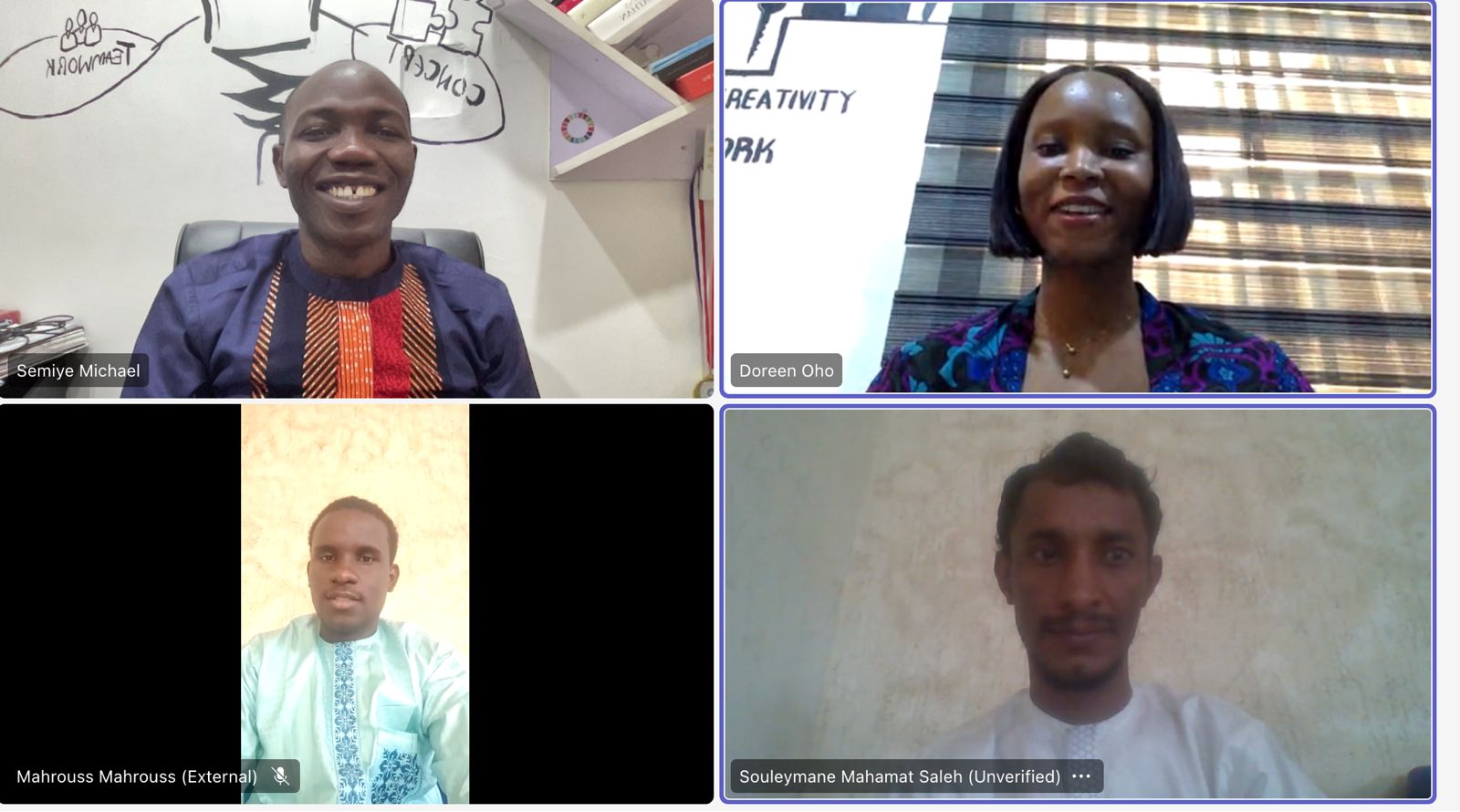By Doreen Mennom Oho
Technical Programs Lead
Development of Educational Action Network (DEAN Initiative) recently had the privilege of meeting with a representative of the Lake Chad Basin Commission (LCBC) Headquarters in Chad, and the President of the Youth Volunteers Chad ACT4SDG Association a youth-led organization in Chad, to establish an implementation partnership for the Lake Chad Climate Justice Fellowship Project, funded by the Climate Justice Resilience Fund (CJRF). This meeting provided a platform for introducing the project and solidifying our shared commitment to empowering young people and addressing the pressing challenges of climate change in the Lake Chad region.
Addressing the Challenges of the Lake Chad Region
The Lake Chad region is home to millions of people whose livelihoods depend on the lake’s resources, however over recent decades, the Lak has shrunk by over 90% leading to large-scale population displacement, resource scarcity, and social tensions. The effects of climate change, including water scarcity, desertification, and extreme weather events, have significantly reduced the lake’s size, exacerbating poverty, displacement, gender-based violence (GBV), and conflict in the surrounding communities. Sadly, funding for climate action often overlooks these vulnerable communities, perpetuating an imbalance in addressing the crisis. There is also a growing trend of shrinking and colonizing the global climate space, making it extremely difficult for vulnerable communities and groups to lead climate solutions or amplify the voices of climate activists from the global south.
The Lake Chad region, located in West Africa, is a vibrant ecological zone with the largest endorheic basin in Africa. It exemplifies the devastating effects of climate change, experiencing desertification, food, and water insecurity. Recognizing these interconnected challenges, our discussion focused on actionable steps to implement the Climate Justice Fellowship Project, designed to build resilience, tackle climate injustice, and promote equity in the region.
Key Highlights from the Meeting
The Objectives of the Commission: The objective of the LCBC is to sustainably manage water resources and preserve the ecosystems of the Lake Chad Basin while strengthening cooperation between member states. The commission also aims to promote regional peace and security by addressing conflicts related to water scarcity and resource management. Additionally, it works to enhance climate resilience through sustainable agricultural and livelihood programs for communities dependent on the basin. LCBC fosters scientific research, policy harmonization, and joint initiatives to combat desertification and environmental degradation in the region. This mission aligns seamlessly with the goals of the Climate Justice Fellowship Project.
Introducing and Defining the Scope of the Project: The fellowship will focus on building the capacity of 20 young climate activists in climate justice advocacy, storytelling, data visualisation, social media, and policy advocacy, equipping them with the skills and knowledge to advocate for climate justice, combat gender- based violence, and address regional insecurity exacerbated by climate change in their communities. Selected fellows will also be supported to attend key global and regional comferences like COP, hence giving them a platform ampliy their stories.
Promoting Access to Climate Finance: Improving access to climate finance remains a cornerstone of this partnership. The LCBC shared insights into regional funding opportunities, while DEAN Initiative highlighted strategies a core componet of the project, which is to support the selecetd fellows with seed grants to implemet projects in their communities.
Strengthening Regional Collaboration: Discussions emphasized the need for collaboration among regional stakeholders to amplify the impact of the fellowship project. By leveraging partnerships, the initiative seeks to address systemic challenges and build inclusive development across the Lake Chad Basin. DEAN Initiative also plans to pay a courtsey visit to the Executive Scretary in N’Djamena and to launch the fellowship in Chad, host a youth-hangout in collobaration with the commision.
Outcomes and Next Steps
The meeting concluded with a shared commitment to:
Launch the Climate Justice Fellowship: Initiating the fellowship program with a focus on training and empowering young leaders to address climate challenges in their communities.
Capacity Building: Organizing workshops and training sessions to enhance the skills of fellows and other stakeholders.
Policy Advocacy: Engaging policymakers to support the fellowship’s objectives and prioritize climate justice in regional strategies.
Monitoring and Evaluation: Establishing a framework to assess the impact of the fellowship project and ensure its alignment with regional goals.
As we move forward with this partnership, we are excited about the potential of the Lake Chad Climate Justice Fellowship Project to transform lives and tackle climate injustice. DEAN Initiative is committed to working hand-in-hand with the LCBC and other stakeholders to create sustainable change in the Lake Chad region.
Stay tuned for updates on the fellowship and how you can support our efforts to promote climate justice and resilience in one of Africa’s most vulnerable regions.

Leave a Reply